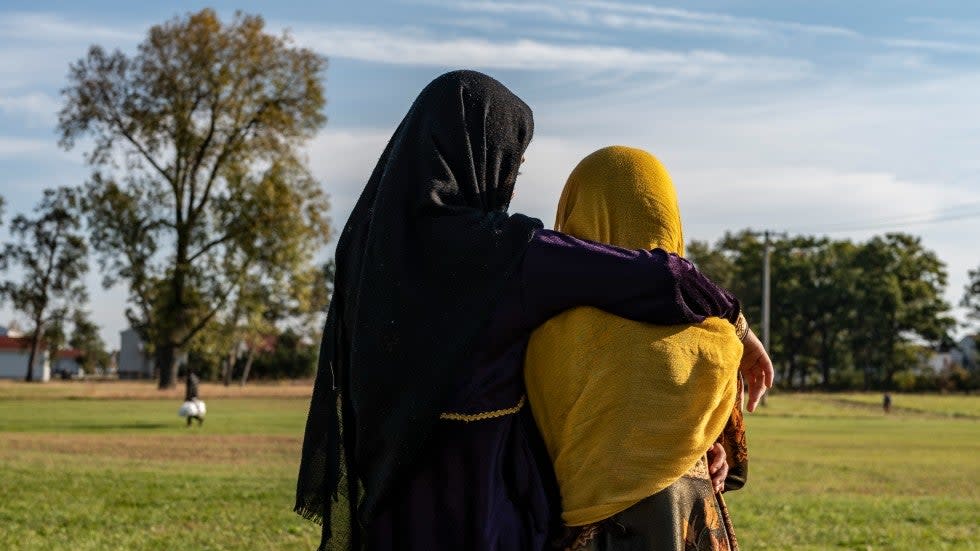Killings, restrictions on women and girls seen since Taliban takeover, UN rights office says

The United Nations Deputy High Commissioner for Human Rights delivered an update on Tuesday calling the situation in Afghanistan one that "threatens the most basic of human rights."
During remarks made in Geneva, Nada Al-Nashif voiced particular concern over the brutal nature of killings carried out by the Taliban as well as the treatment of women and girls since the group seized Kabul in August.
Al-Nashif said that the agency had received "credible allegations" of over 100 killings of ex-Afghan national security forces and other people who were affiliated with the previous government. She added that at least 72 of the killings, which took place between August and November, could be attributed to the Taliban.
"In several cases, the bodies were publicly displayed. This has exacerbated fear among this sizeable category of the population," Al-Nashif said, noting the brutal nature of the killings including reports of "hanging, beheadings, and public display of corpses."
The Deputy High Commissioner for Human Rights also addressed issues concerning the poor treatment and abuse of women and girls in the country.
"The decree on women's rights issued by the de facto authorities on 3 December represents an important signal but leaves many questions unanswered," she said. "For instance, it does not make clear a minimum age for marriage, nor refer to any wider women and girls' rights to education, to work, to freedom of movement, or to participate in public life."
She also noted the country had seen a drop in girls attending secondary school, even in provinces where they are permitted to do so.
In a rare interview, Afghan Foreign Minister Amir Khan Muttaqi told The Associated Press on Sunday that the Taliban's new leaders are "committed in principle to women participation."
Muttaqi claimed in the interview that the Taliban have changed since their first rule decades ago when women were prohibited from participating in many realms of public life including schools, workplaces and entertainment.

